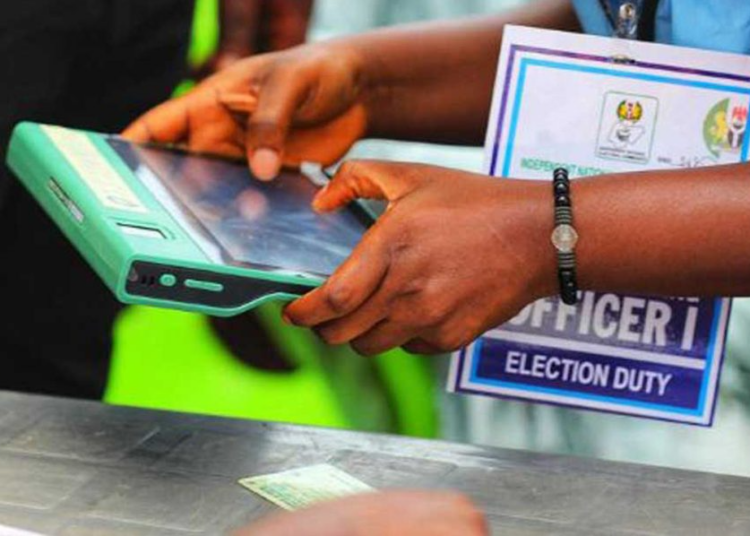The fallouts of the February 25, 2023 presidential and National Assembly elections conducted by the Independent National Electoral Commission (INEC) have shown the need to further reform the nation’s electoral system to minimise human interference in the process.
Media reports exposed several polling units in which voters did not get to cast their ballot because either the electoral officials did not show up or the election was disrupted by hoodlums. In some instances, electoral officials and policemen were caught thumb-printing ballot papers while in others, voters were barred from voting for their preferred candidates. In other cases, voters could not find their polling units. Also, most officials failed to report for duty on time on election day. Many voters, after waiting several hours, simply went away in frustration, and for those that stayed back, some of them waited until midnight or the next day to cast their votes. And there are claims that some of the results were doctored by officials.
Also, INEC’s failure to transmit the polling units’ results directly to its IReV portal, as it had repeatedly promised, and its resort to manual collation of results cast a heavy shadow on the transparency of the process and led many to question the outcome. As a result, the presidential candidates of the Peoples Democratic Party, Alhaji Atiku Abubakar, and Labour Party, Mr Peter Obi, have both rejected INEC’s declaration of Bola Ahmed Tinubu of the ruling All Progressives Congress (APC) as the winner of the presidential election, with both accusing INEC of breaching its guidelines and conducting a fraudulent election. Both have gone to court. Apart from the duo, both local and international election observers have also pointed out deficiencies in the poll, describing it as falling short of expectations.
It is worth noting that Nigeria has made significant progress in election management since the return of this democratic dispensation in 1999. Then, the voter register was manually collated, and so was accreditation, voting and results collation. At that time, the election was neither free, fair nor credible. Thuggery, ballot box snatching and ballot stuffing and other forms of irregularities were rife. In fact, dominant political actors could just write the results and that was that. In 2007, the process was so flawed that even the beneficiary of the presidential election, the late Umaru Musa Yar’Adua, admitted that the election that brought him to power was fraught with faults and pledged electoral reforms, setting up the Justice Mohammed Uwais committee. After Yar’Adua’s demise, President Goodluck Jonathan continued with the reforms, during which INEC under Prof Attahiru Jega introduced technology, via the card reader, to sanitise the voter register and voter accreditation.
2023 Presidential Poll Better Than Past Elections – Presidency
These initiatives, and the introduction of top academics (professors) as state collation officers, reduced the incidence of rigging and vote manipulation, and brought more transparency to the system, which saw the incumbent lose election to the opposition candidate for the first time in Nigeria as then General Muhammadu Buhari (retd.) defeated President Jonathan in the the 2015 election.
Even though there were challenges with the card reader and the vote process under Jega’s INEC, the election was generally seen as substantially credible and the number of losing candidates challenging the outcome in court was significantly reduced. In a historic move, President Jonathan conceded defeat and congratulated Buhari even before the final results tally was announced by INEC.
Jega’s successor, Professor Mahmud Yakubu, raised the bar by introducing the Bimodal Voter Accreditation System (BVAs) to further sanitise voter registration and accreditation, in addition to the promise of real-time uploading of polling units’ results on election day in order to shut out vote manipulation at collation centres. This innovation worked well in off-season state-level elections in Edo, Osun, Ekiti, Anambra and council polls in the Federal Capital Territory.
These showings, no doubt, raised a lot of expectations on INEC ahead of the 2023 general elections, especially as it had, at countless fora, locally and internationally, pledged that BVAS and electronic transmission of results from polling units were its trump cards. This accounted for the general uproar when it went back to manual collation to call the presidential election.
As a newspaper, we are of the opinion that there is a need to further deepen the electoral process by going further to introduce electronic voting (eVoting) and electronic transmission of results real-time to a central point, among other reforms. Among its advantages is that e-Voting lessens the chances of electoral officials to change the vote counts by reducing election officials’ direct interaction with ballots or counts and other forms of voter fraud. It also allows larger voter participation especially as the process is faster, less cumbersome, and there is more trust in the system due to reduced human interference, among others.
Also, due the nature of holding general elections at one go, many people on essential duty, like security agents, medical staff, journalists and transporters, do not get to exercise their voting right. In this case, INEC could copy the American system where persons could vote ahead of election day either personally or through mailed ballots. In this way the crowds on election day will be greatly reduced and more manageable. Finally, many Nigerians could not vote because they could not access their polling units due to distance. Further reforms could take care of this by making it possible to allow Nigerians to vote wherever they reside. The voting machine can be configured to recognise and invalidate double or multiple voting, with the offender easily identifiable for arrest and prosecution.





